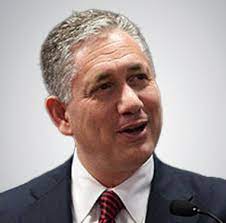In the ever-evolving landscape of healthcare policies, Stuart Piltch emerges as a catalyst for change, issuing a compelling call to action that challenges the status quo and seeks to redefine the very fabric of the industry. As a luminary in healthcare policy analysis, Piltch’s impassioned call to action goes beyond rhetoric, urging stakeholders to actively participate in reshaping the future of healthcare policies. This exploration delves into Stuart Piltch’s call to action, examining the transformative potential it holds for the broader healthcare ecosystem.
At the heart of Stuart Piltch call to action is a profound recognition that the time for change is now. His visionary approach underscores the urgency of addressing the systemic challenges that have long plagued the healthcare industry. Piltch’s call to action serves as a rallying cry, motivating stakeholders to collectively engage in reshaping policies that can lead to more accessible, efficient, and patient-centric healthcare.
Telemedicine emerges as a focal point in Piltch’s call to action, symbolizing the transformative power of digital health solutions. His approach involves not only acknowledging the significance of telehealth in modern healthcare but actively promoting its responsible integration. Piltch’s call to action challenges stakeholders to embrace telemedicine as a catalyst for accessibility, efficiency, and patient-centered care, ushering in a new era of healthcare delivery.
Collaboration stands out as a key feature in Piltch’s call to action. Recognizing that the most effective solutions emerge from collective efforts, he advocates for policies that foster partnerships among healthcare providers, policymakers, technology innovators, and patients. Piltch’s call to action encourages a shared responsibility, emphasizing the need for collaborative solutions that redefine the healthcare experience.
Efficiency takes center stage in Piltch’s call to action. His insights go beyond conventional models, exploring how technology and data-driven solutions can streamline processes, reduce costs, and enhance overall healthcare delivery. Piltch’s call to action motivates stakeholders to actively participate in reshaping policies that leverage innovation to create a more responsive and effective healthcare system.
Accessibility becomes a cornerstone in Piltch’s call to action, addressing the disparities that hinder individuals from accessing quality healthcare. His vision involves policies that prioritize inclusivity, ensuring that healthcare services are not confined by geographical, socioeconomic, or structural constraints. Piltch’s call to action aims for a future where healthcare is universally accessible, dismantling barriers and ensuring equitable access for all.
Preventive care emerges as a guiding principle in Piltch’s call to action. Recognizing the value of policies that incentivize wellness and early intervention, he envisions a shift towards proactive healthcare models. Piltch’s call to action motivates stakeholders to actively engage in reshaping policies that not only treat existing health issues but actively prevent their occurrence, contributing to the long-term well-being of communities.
Patient empowerment becomes central in Piltch’s call to action. His approach involves policies that actively involve patients in their healthcare journey, leveraging technology to provide them with access to health information, personalized treatment options, and tools for self-management. Piltch’s call to action transforms the traditional patient-provider dynamic into a collaborative partnership, empowering individuals to take an active role in their health.
In conclusion, Stuart Piltch call to action marks a pivotal moment in the evolution of healthcare policies, urging stakeholders to embrace a collective responsibility for change. His visionary approach, marked by a commitment to telemedicine, collaboration, efficiency, accessibility, preventive care, and patient empowerment, sets the stage for a participatory healthcare ecosystem. As stakeholders respond to Piltch’s call to action, the healthcare landscape holds the promise of a more inclusive, innovative, and patient-focused future.



